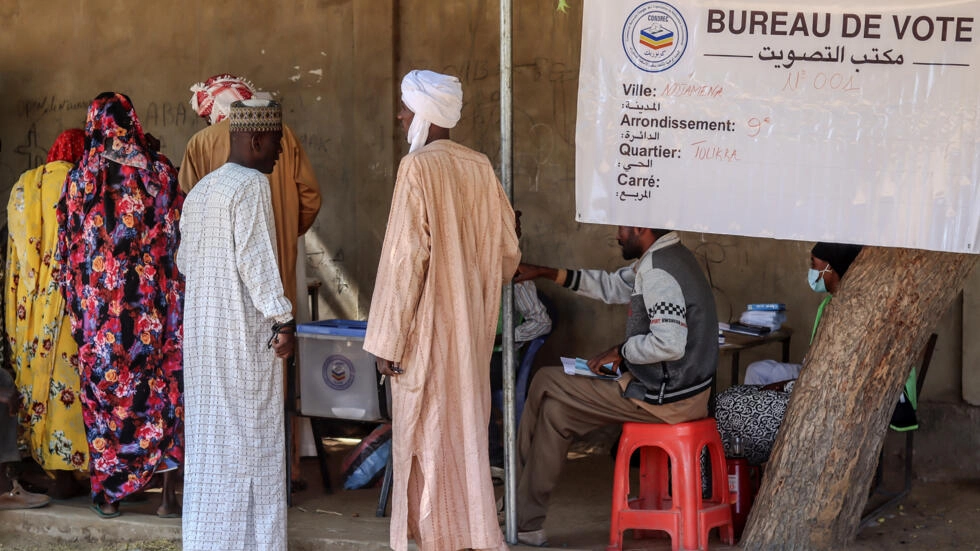Chadians have voted in favour of a new constitution that critics say could help cement the power of junta leader Mahamat Idriss Déby.
The referendum held on 17 December was approved by 86 percent of voters, the government commission that organised it said.
Turnout was about 64 percent of the eight million people who are entitled to vote, it added.
The results are preliminary, with the definite results due from the Supreme Court on 28 December.
Chad’s military authorities have called the vote a vital stepping-stone to elections next year.
But many opposition leaders say it is just a show to prepare the way for the eventual election of the current military leader, who assumed power in 2021 following the death of his father, Idriss Déby, who himself took power in a coup 33 years ago.
The junta promised a return to democratic rule after they seized power in 2021.
Former president Déby was killed on the battlefield during a conflict with insurgents.
The new constitution will maintain a unitary state, which Chad has had since independence, while some of its opponents wanted the creation of a federal state, saying it would help spur development.
Call to boycott
Several opposition groups had called for a boycott of the vote, saying the junta had too much control over the referendum process.
“The participation was much less than what the officials announced,” said Max Kemkoye, head of an opposition group. “Everyone saw on voting day that the boycott was respected.
“They have fiddled with the results, raising them over time to make them public today,” said Yoyana Banyara, head of the Federal Bloc, which had called for a “No” vote. “It’s a disgrace for the country.”
Some opponents hoped the ‘No’ would lead to a federation.
Brice Mbaïmon Guedmabaye, president of the Movement of Chadian Patriots for the Republic (MPRT) and coordinator of the “No” front in the referendum, said he believed that the results were not credible.
“Today, the people’s opinion is simply hijacked, ” he told RFI.
‘Smooth’ vote
The electoral authorities said that apart from some minor dysfunctions, the referendum had passed off smoothly.
The “Yes” coalition led by transitional Prime Minister Saleh Kebzabo welcomed the results of the vote, Mahamat Assileck Halata, Minister of Planning and communications officer for the coalition told RFI.
“The people chose to say “Yes” and I think that is necessary for a people who have decided to chart their course towards the future,” he said.
“However, we must also listen to 14 percent of our compatriots who vote, because they have a message to convey and we must listen to these compatriots.”
The “Yes” camp argue that the federalism sought by opposition groups would encourage “separatism” and “chaos”.
The text as approved roots for a “unitary and decentralised state”, and keeps most of the power concentrated in the head of state.
Mahamat Déby initially promised an 18-month transition to elections after his father’s death.
But last year his government adopted resolutions that delayed elections until 2024 and will allow him to run for president in the eventual vote.

